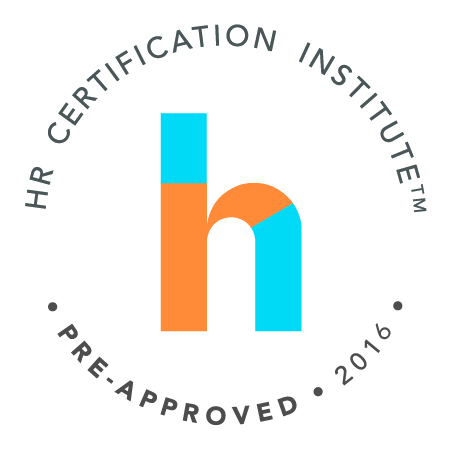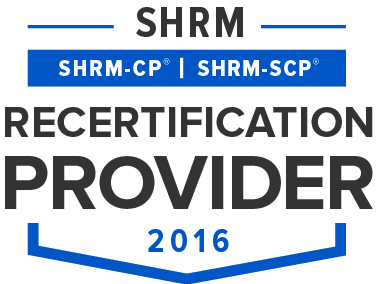AGENDA
7:30 am to 8:15 am: Registration
8:15 am to 8:30 am: Opening Remarks
Morning Session
8:30 am to 10:00 am: Keynote Presentation – “Tips From The Labor Commissioner’s Office: Understanding the Fair Pay Act and an Update on Paid Sick Leave”
Presented by Steve Jones, Deputy Labor Commissioner from the California Department of Industrial Relations
As of January 1, 2016, the Fair Pay Act is in effect in California. It is one of the toughest pay equity laws in the nation and employers must take note, especially due to the new criteria for determining equal pay. Mr. Jones will provide an overview of this important new law, including the heightened standards for determining equal pay, employer obligations, and penalties for violations. In addition, Mr. Jones will present an update on California’s paid sick law and employer obligations.
- An overview of the Fair Pay Act’s key provisions;
- What is “substantially similar work”?
- Posting requirements;
- Penalties for violations of the Fair Pay Act;
- Accrual options for paid sick leave;
- Employer ability to change from an accrual to upfront method;
- Paid sick obligations for employees on extended leave;
- Notice requirements.
10:00 am to 10:15 am: Break
10: 15 am to 11:45 am: Morning Break-Out Sessions
Human Resources 300 – Part 1: “HR Compliance is Complicated”
Presented by Bernadette M. O’Brien, Esq., SPHR, James Lodenquai, HR Director of Vallarta Supermarkets, Renee Sherman, HR Administrator and Brianne Uebelhardt, J.D., HR Generalist
Compliance is complicated. Let’s face it – ensuring compliance with the untold number of HR related California and federal laws is complicated at best. This two-part presentation, designed as an advanced course for human resource administrators, upper management and risk managers, addresses some of the more complex compliance obligations faced by employers, in addition to providing a review of key documentation pertaining to compliance, tips for responding to high risk situations, and an overview of trends to watch for as 2020 approaches.
- Hiring—Recruiting, onboarding, I-9 verification, background checks, notices;
- Wage & hour—meal periods, paystub violations, exempt deductions, travel time;
- Benefits—2016 ACA employer mandate, vacation policy trends, holiday premium pay;
- Leaves of absence—family leave, medical leave, pregnancy, sick leave, miscellaneous leaves;
- Performance management—performance reviews, PIPs, disciplinary systems.
“Medical Marijuana In the Workplace- An Ongoing Challenge for Employers”
Presented by Mark Pew, Sr. Vice President at Prium, Troy W. Slaten, Esq. and Robert A. Dudley, Esq.
The federal Controlled Substances Act (CSA) criminalized marijuana, and physicians cannot legally prescribe marijuana under the CSA. Further, the U.S. Supreme Court has ruled that marijuana users can be criminally prosecuted. However, 25 jurisdictions (Alaska, Arizona, California, Colorado, Connecticut, Delaware, the District of Columbia, Georgia, Hawaii, Illinois, Maine, Maryland, Massachusetts, Michigan, Minnesota, Montana, Nevada, New Hampshire, New Jersey, New Mexico, New York, Oregon, Rhode Island, Vermont and Washington) have some form of medical marijuana legislation. Courts in states such as California and Colorado have interpreted their legalized medical marijuana statutes favorably to employers. However, there is a significant discrepancy between federal and state laws, which has led to employer concerns about accommodating disabled employees who use medical marijuana. Common questions on this important subject include: (1) If an employee uses medical marijuana, can the employer terminate that employee’s employment following a positive workplace drug test result? (2) Must an employer accommodate an employee using medical marijuana? Join this panel of experts for an insight into these questions and much more.
- Accommodating the use of medical marijuana;
- Federal versus state law on medical marijuana;
- A review of the federal Drug-Free Workplace Act;
- Marijuana users and discrimination laws;
- Laws that decriminalize use vs. decriminalize use and provide employment protections;
- Termination following a positive workplace drug test;
- Substance abuse detection in the workplace;
- Post-injury drug testing;
- Best practices on substance abuse policies.
“Effectively Managing the Overlap Between Workers’ Compensation and the Fair Employment and Housing Act”
Presented by George Cruz, Battalion Chief, L.A. County Fire Department, Eric E. Ostling, Esq. and Dona Lee Skeren, Esq.
When an employee is injured, all California employers must comply with workers’ compensation laws, and all employers with five or more employees must comply with the overlapping disability discrimination laws under the Fair Employment and Housing Act (FEHA), which are likely triggered when an employee sustains a work related injury. Failure to understand the employer’s obligations under both sets of laws can turn a straightforward workers’ compensation case into a FEHA nightmare. And, the number of disability discrimination lawsuits filed in California continues to skyrocket. With the passage of the new California disability regulations in 2013, and impending amendments, California employers must understand their obligations under both workers’ compensation law and the FEHA.
- Strategies for preventing work comp cases from evolving into costly FEHA lawsuits;
- Best practices for complying with FEHA in workers’ compensation cases;
- What to expect (and do) if a work case becomes a FEHA disability discrimination lawsuit;
- What are an employer’s interactive process obligations in work comp cases?
- What accommodations are required?
- Multiple medical opinions on restrictions-which one can the employer rely on?
- Effectively managing extended leaves of absence and return to work challenges.
“Strategies for Defending Post-Termination Workers’ Compensation Claims”
Presented by John M. Langevin, Esq., Amanda A. Manukian, Esq. and Armen Yedalyan, Esq.
Post-termination workers’ compensation claims continue to plague employers. Particularly frustrating is the post-termination claim following disciplinary action. Join two expert workers’ compensation defense litigators for an informative session on defending post termination workers’ compensation cases.
- Review of the post-termination defense [Labor Code section 3600(a)(10)];
- Exceptions to the post-termination defense;
- Discovery strategies;
- Litigation strategies;
- Challenges of post-termination claims following personnel actions;
- Importance of documentation in defending claims.
“Employer’s Fraud Task Force Update: Disability Insurance Fraud”
Presented by Laura Clifford, Executive Director of the Employers’ Fraud Task Force, Shaddi Kamiabipour, Deputy District Attorney with the Insurance Fraud Unit, Orange County DA’s Office and Hope Callahan, Deputy District Attorney with the Insurance Fraud Unit, Orange County DA’s Office
What is it? Detecting and Prosecuting. Are you vulnerable? Tools to figure it.
11:45 am to 1:15 pm: Lunch
1:15 pm to 2:45 pm: Afternoon Break-Out Sessions
Human Resources 300 – Part 2: “HR Compliance is Complicated”
Presented by Bernadette M. O’Brien, Esq., SPHR, James Lodenquai, HR Director of Vallarta Supermarkets, Renee Sherman, HR Administrator and Brianne Uebelhardt, J.D., HR Generalist
- Disability management—leaves, return-to-work, med. certification, interactive process, accommodation, disability discrimination, associational discrimination;
- Preventing discrimination & harassment—policies, EEO training, investigation;
- Termination—separation from employment, WARN Act, ADEA and OWBPA;
- A Review of the Top 5 HR policies;
- “Seven Habits of Frequently Sued Employers”;
- An Overview of California’s New FEHA Regulations in Effect as of April 1, 2016;
- Five key employment law cases of 2015/2016.
“Reducing the Risk of Costly Wage and Hour Litigation-Key Considerations“
Presented by Eric E. Ostling Esq. and Timothy D. Morgan, Esq.
Wage and hour litigation continues to pose significant problems for employers. Plaintiff lawyers continue to file costly class action lawsuits and employers continue to pay huge amounts to defend and resolve these lawsuits. This presentation will provide important tips for reducing the risk of costly wage and hour litigation.
- Post Brinker – meal period obligations are still a concern;
- How do employers prove employees took rest periods as required;
- Overtime-Why it’s the number one federal wage and hour claim;
- Challenges with the administrative exemption;
- The DOL on the offensive-major changes to the white collar exemptions;
- The DOL’s stance on independent contractor versus employer;
- What is a PAGA letter and how should an employer respond?
- Arbitration agreements and class waivers.
“Best Practices for Workplace Investigations“
Presented by David Alcala, CPFI, SIU Partnership Manager at Probe Information Services, Inc., Richard Harer, Vice President at Specialized Investigations and John B. Floyd, Esq.
When employers receive a complaint of workplace harassment or discrimination, they are legally obligated to take prompt action and investigate. This presentation will cover key considerations in conducting effective workplace investigations.
- Responding to complaints-the legal obligation of employers to investigate;
- Developing an investigation plan;
- Determining who will conduct the investigations and implications;
- Best practices for gathering evidence prior to witness interviews;
- Preparing questions for witness interviews (complainant versus accused);
- Determining appropriate interview locations;
- Conducting witness interviews;
- Documenting investigations;
- Writing the investigative report;
- Discovery implications of reports;
- Making recommendations;
- Scenarios: harassment claim, threat of violence, work related injury-suspected fraud.
“Hot Topics in Workers’ Compensation“
Presented by Todd T. Kelly, Esq., Laura B. Banker, Esq., Agnes Hoeberling, Chief Operating Officer, Intercare Holdings Inc., and
Sharon Weissinger, R.N., Senior Occupational Health Manager, Risk Management, Western U.S., Hyatt Hotels Corporation
Join this panel of experts, including both defense and applicant’s counsel, for a review of 2016 hot topics in workers’ compensation.
- Jurisdiction and exclusive remedy;
- Insurance coverage;
- TD, PD –Apportionment;
- Medical care and MPN issues;
- Penalties & extraordinary remedies;
- PQME, UR, IMR and IBR Process;
- Workers’ Compensation fraud prosecutions;
- Claimant fraud;
- Employer fraud;
- Provider fraud;
- Gouging – Medical necessity;
- Spinal Hardware Pass-through;
- Big PhRMA;
- MSAs;
- Pay and Chase – Fraud Recovery Efforts;
- The impact of undocumented status on work comp claims.
“Case Law Update on Employment Law and Workers’ Compensation”
Presented by David M. Weitzman, Esq., Dona Lee Skeren, Esq., and Kyle R. Uebelhardt, Esq.
This presentation will cover significant 2015 and 2016 employment law and workers’ compensation related case law (both state and federal) impacting workplace policy and compliance.
2:45 pm to 3:00 pm: Break
3:00 pm to 4:30 pm: Keynote Presentation – “Key Steps in Avoiding a Costly Disability Discrimination Lawsuit”
Presented by Kevin Kish, Esq., Director, California Department of Fair Employment and Housing
The Department of Fair Employment and Housing (DFEH) is the California civil rights agency that enforces the state’s anti-discrimination law, specifically the Fair Employment and Housing Act (FEHA). Disability discrimination claims are one of the most common claims filed under the FEHA. This session will review typical reasons for complaints with the DFEH, including:
- Perceived lack of concern from the employer for reported concerns of the employee;
- Employers failing to conduct mandatory trainings;
- Employers not engaging in the interactive process to provide reasonable accommodations to the employee for leave and disability;
- Employers failing to train HR staff on leave and disability rights of employees;
- For employers who have denied accommodations, inability to prove undue hardship.
Also, why retaliation is the number one complaint, how to avoid these claims, and what NOT to do as an employer receiving a DFEH Complaint.
4:30 pm to 5:15 pm: “An Update-The Challenges of Resignations and Compromise & Releases”
Presented by John B. Floyd, Esq. and Todd T. Kelly, Esq.
This panel of experts will provide an update on important considerations when requiring resignations/agreements not to seek rehire as part of a Compromise & Release in workers’ compensation cases.
Our conference is approved for CE Credits, MCLE, SHRM, HRCI and CEU’s for ARPM, CPDM and CCMP


